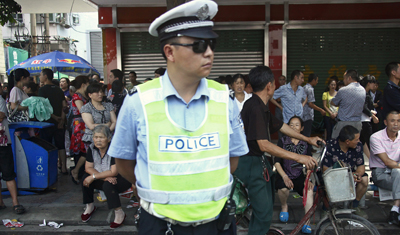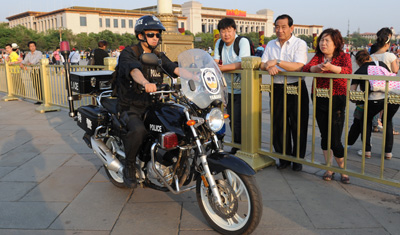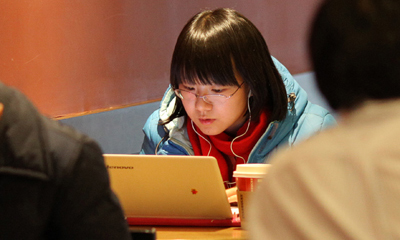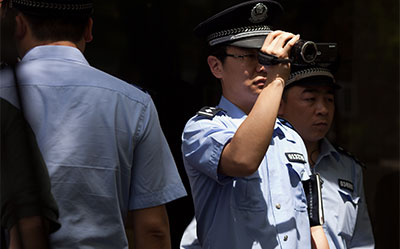China
2012

Shallow victory for China’s journalists, protesters
Shi Junrong, Xi’an Evening News bureau chief in the city of Wei’an, ran into trouble recently after he reported on the costly brand of luxury cigarettes favored by local officials. He announced on his microblog that the paper suspended him soon after, according to the U.S. government-funded Radio Free Asia.
The New York Times takes on China’s censors
Well, that didn’t take long. Just days after The New York Times’ soft launch of its Chinese-language edition and accompanying microblog accounts, Berkeley-based China Digital Times website reports that the @nytchinese Sina Weibo feed is no longer accessible in China, along with two accounts hosted by Netease and Sohu. We couldn’t pull them up this…
Don’t punish Chinese restrictions with more restrictions
The Committee to Protect Journalists is watching with concern the progress of H.R. 2899, the Chinese Media Reciprocity Act of 2011, which is under discussion Wednesday in front of the Subcommittee on Immigration Policy and Enforcement. The bill seeks to reduce the number of visas available to journalists (and their families) working in the United…
Chinese writers sentenced for ‘essays of inciting nature’
Chinese activists Lü Jiaping, his wife Yu Junyi, and an associate, Jin Andi, were imprisoned in 2010 without their families being informed. The full details of their 2011 trial and sentences were not made public until 2012, according to the English-language Hong Kong-based South China Morning Post.
State-sponsored attacks: open season on online journalists
The last few weeks have offered the strongest indications yet that nation-states are using customized software to exploit security flaws on personal computers and consumer Internet services to spy on their users. The countries suspected include the United States, Israel, and China. Journalists should pay attention–not only because this is a growing story, but because…

23 years after Tiananmen, China is still paying
The annual crackdown on commemorations of the June 4 anniversary of the brutal suppression of student-led demonstrations based in Tiananmen Square in 1989 Beijing is under way, according to Agence France-Presse. What’s concerning is the number of writers and activists for whom “crackdown” is the new normal.


